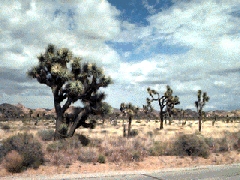|
The Mojave Desert consists of more than 25,000 square miles of sand and
gravel, coyotes, rattlesnakes, buttes, chaparral, Joshua trees, cactus
and many other natural wonders in an expanse which extends into 4 states.
I expected to find a lot of things when visiting there recently to work
with some captured wild horses. I did not expect to find it full of fire hydrants.
The portion of the desert which occupies the northeast corner of Los
Angeles County is actually quite littered with fire hydrants. This is a
sparsely populated area spread out over a huge territory and as the name
"desert" implies, this area has virtually no water.
In order to develop the desert for ranches and homes, water had to be
provided. The Los Angeles County Water District installed water tanks
on each of the various buttes (small isolated mountains) that are found
throughout the desert and tied them together with a water main system.
Along the water main system are fire hydrants which are located at
strategic points along the water main, sometimes at the desolated intersection
of two dusty roads.
Like California water systems of 150 years ago, fire protection is
only a portion of the function of these hydrants, and for many of them,
a very minuscule portion at that. Most of the homes and ranches are
isolated and are not hooked up to any water supply. The most common use
for these hydrants is to enable ranch and home owners, who have paid the
water district for connection permits, to fill up portable tanks so that
they can get water for domestic use and for their livestock. For this reason, many of these
hydrants have been placed in locations where it is safe for a pickup,
tank truck or trailer to pull off the road for a fill-up.
Due to the topography, hydrant pressure is often around 150 psi.
Typical storage tank setting, nestled in a butte
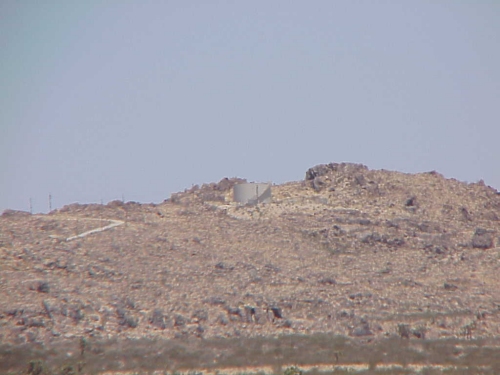
|
(Click pictures for closeups)
0612
Greenberg Model 123
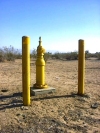
0613
Older Jones wet barrel
(threaded 6" riser)
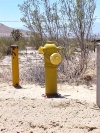
0614
Later model Jones hydrant
(Casting date 1992)
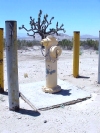
Want to know more about the Desert?
|
|



